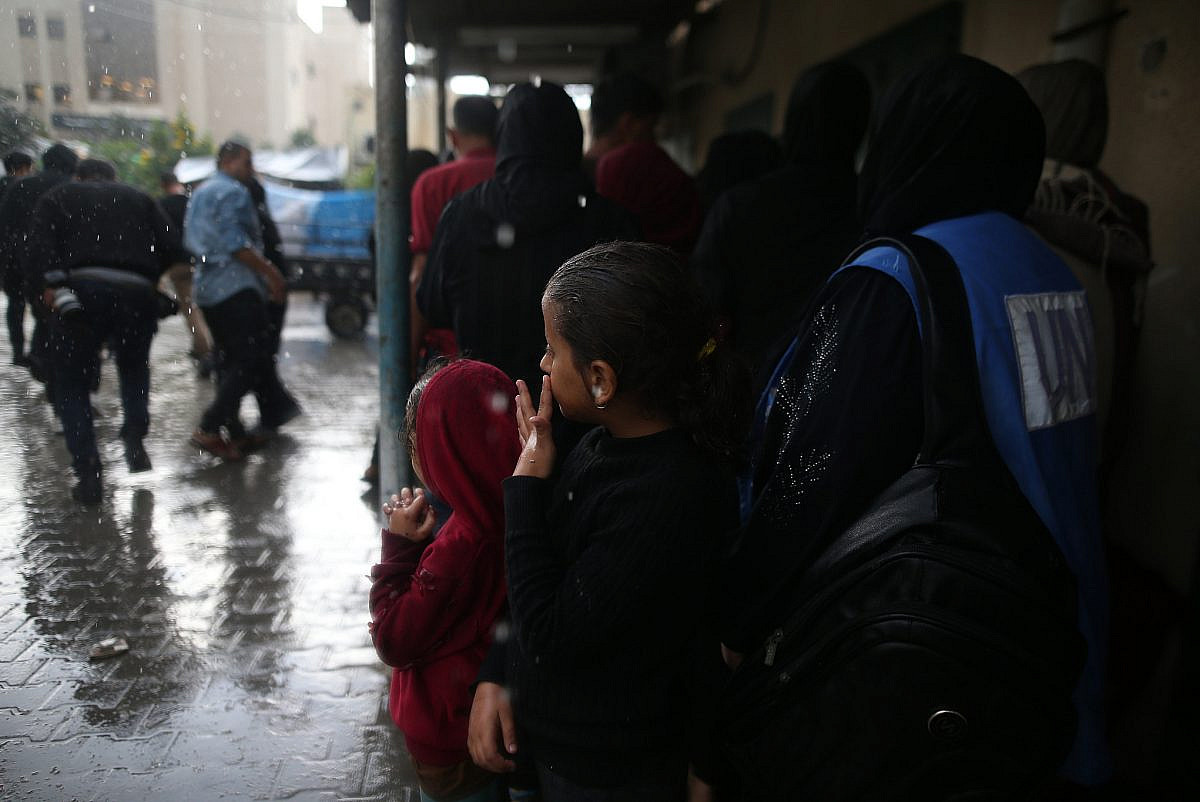The first rains of winter started falling in the Gaza Strip yesterday, exacerbating the already dire conditions resulting from Israel’s aerial bombardment, ground invasion, and intensified siege of the territory since October 7. In this photo essay, +972 meets several Palestinians in the southern Gaza city of Khan Younis to see how they are coping with shortages of food, water, and shelter amid this man-made humanitarian crisis.
Abed Barghout is spending his days making and selling falafel in the street. “We do not have any fuel or cooking gas — our only option is to use wood and paper boxes for cooking,” he says. “But even getting wood is difficult: the prices have surged fourfold, and you can’t buy it inside the towns or the refugee camps. You can only get it from the agricultural border areas, and we are risking our lives even more when we go there.
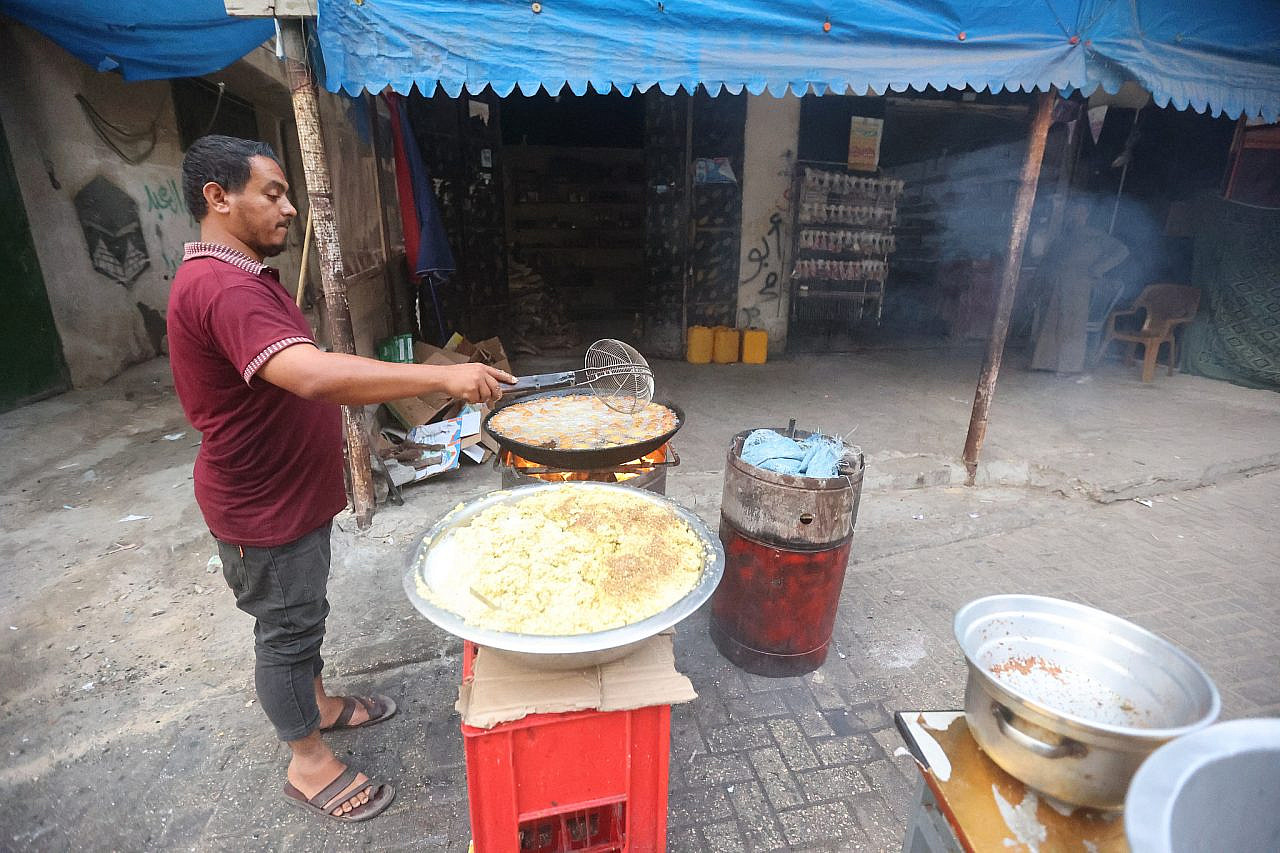
“There is also a severe shortage of food, and we are cooking with the few ingredients we still have,” he continues. “I mainly sell falafel and there is a huge demand for it. For several days now, falafel is the sole item I can offer. And people are eating only falafel. The aid coming in does not include any food; it primarily consists of medical supplies and some water.”
Munira Al-Masri is sheltering in a tent in the courtyard of Khan Younis’ Al-Nasser Hospital. “It rained last night and this morning. Our conditions in the rain are difficult to describe — we are drenched,” she says. “We are all displaced from our homes, so we’re living in tents and covering them in nylon. And on top of that, there’s no food or drinking water.”
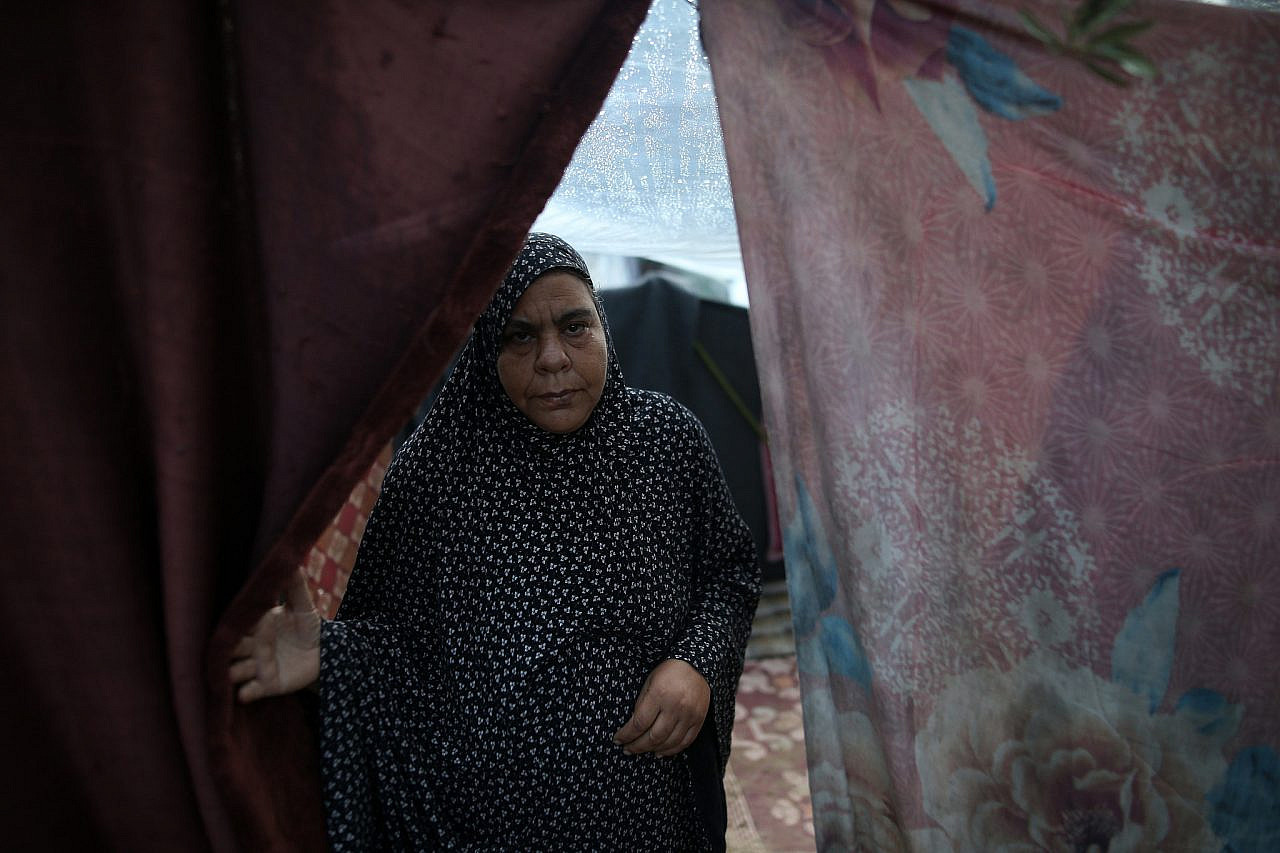
Sally Al-Masri is also sheltering at Al-Nasser Hospital. “I was displaced with my family from the Heteen area in Khan Younis refugee camp,” she says. “Look how we live now because of this war: it’s raining, we are sitting here in tents but not sealed off from the rain. My kids were playing outside and they came back now all wet.”
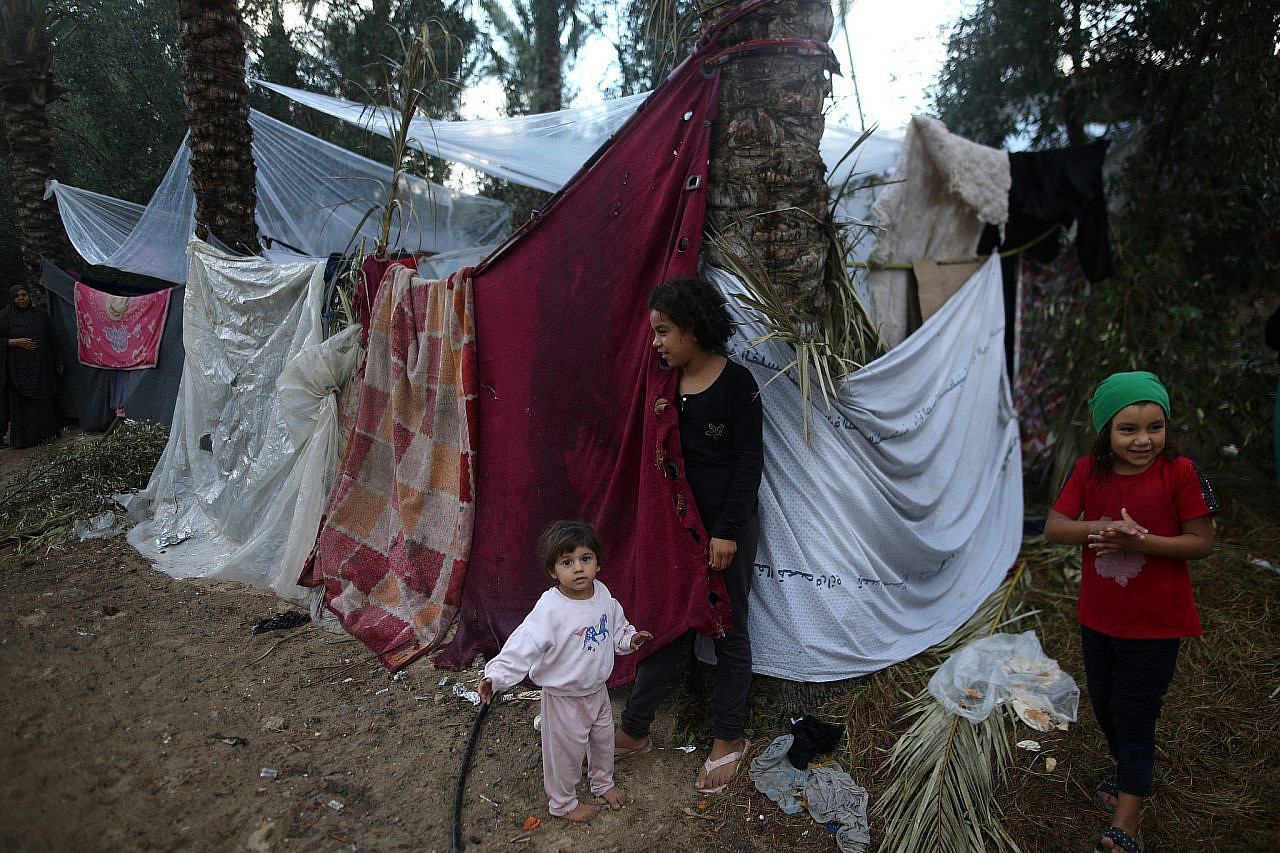
Saeda Al-Masri also fled Khan Younis refugee camp with her family after it was bombarded by the Israeli military. “We came first to the UN Relief and Works Agency school, but it was full,” she explains. “There was no room for us there, so we came here to Al-Nasser Hospital. We set up a tent, and yesterday we managed to get some nylon to put on top because of the rain.
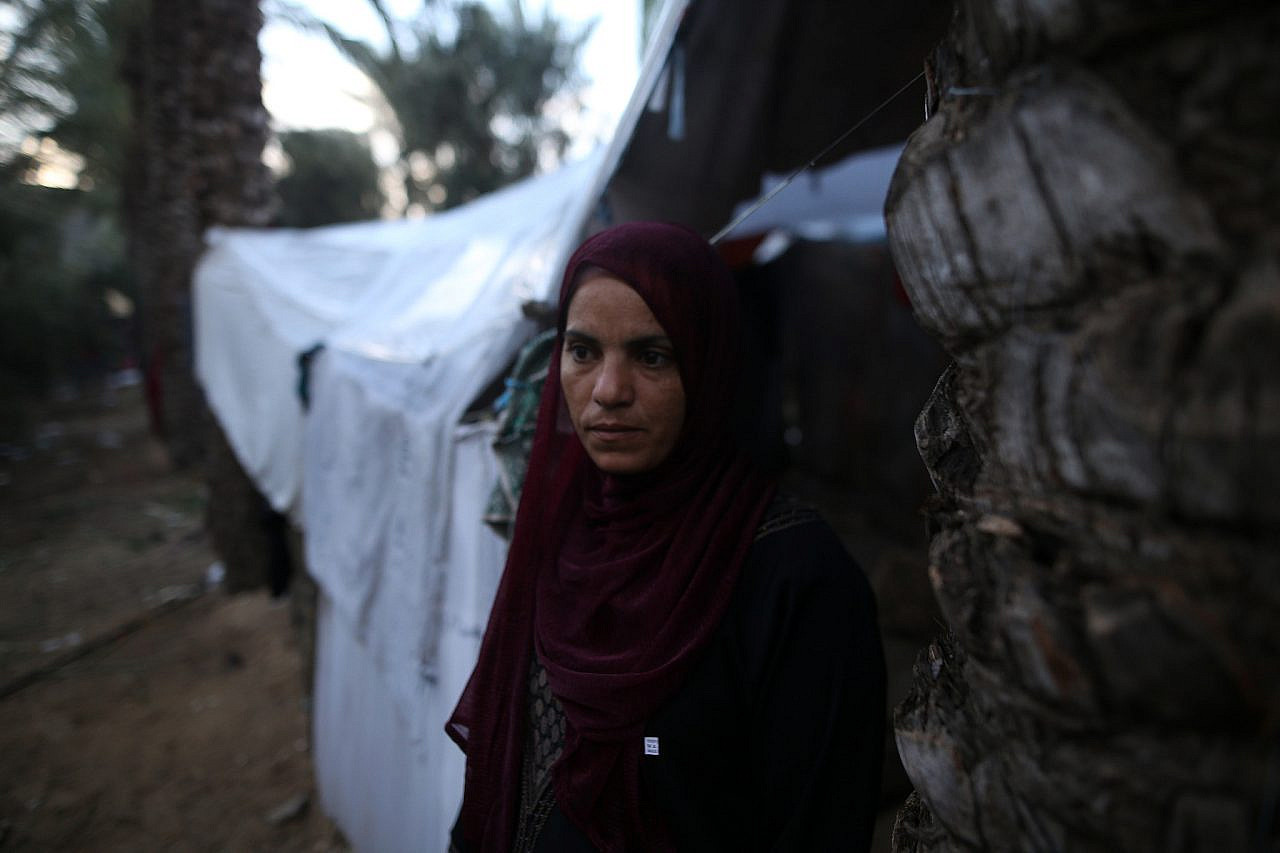
“My kids want clothes, they are all wet,” she continues. “The tent can’t protect us from the rain. This is the first rain and we are only at the beginning of winter. My son came to me this morning all wet and asked for dry clothes. What can I answer? I told him that I do not even have one shekel. I wish someone could fix the tent for me, so we could sleep at night.
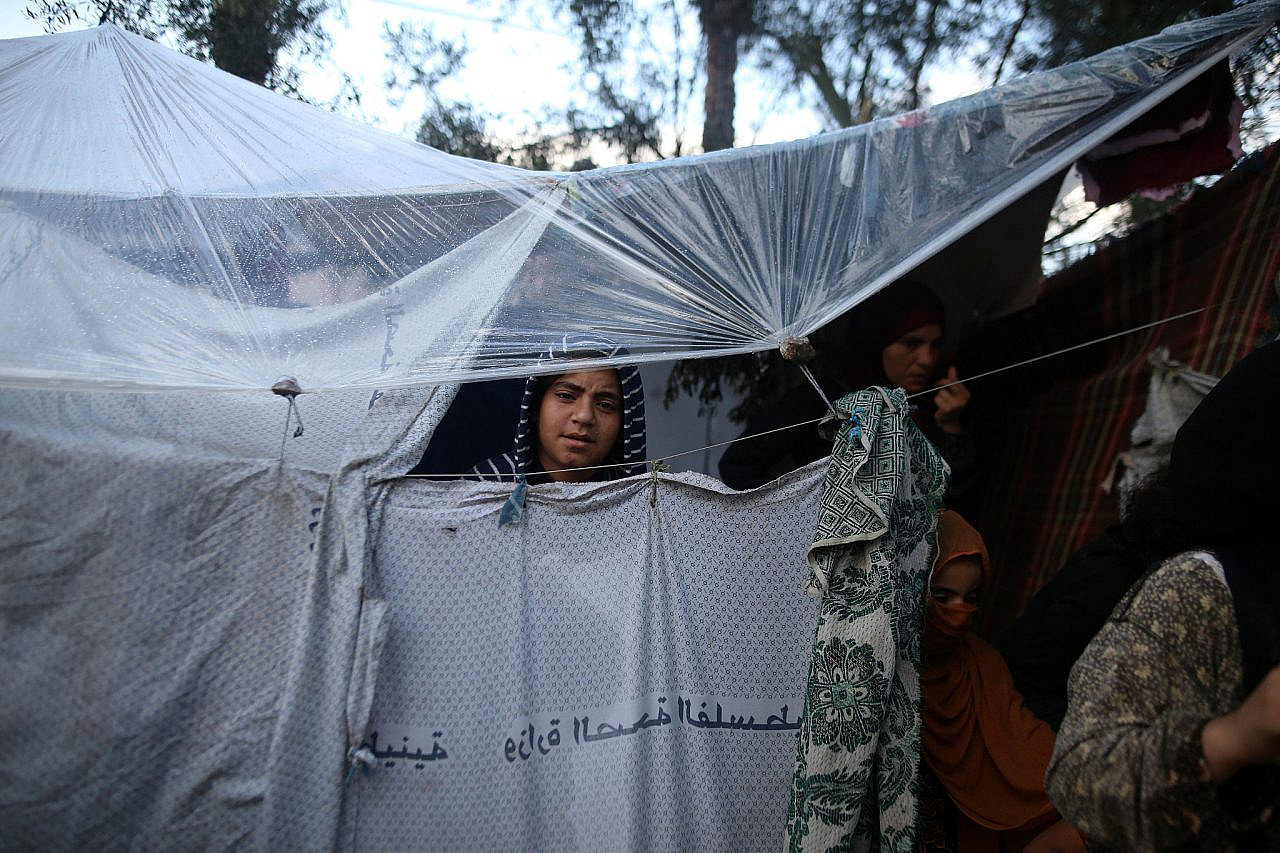
“Last night, my kids were nagging me for food,” Al-Masri went on. “They were all hungry. My little girl had a stomach ache. My kids are starving, but I could not offer them food. We were supposed to get rice yesterday, but it was not distributed as promised. At 10 p.m. last night I went around and begged people for food. A kind person gave me a bit of rice. I was embarrassed to ask for food.”

